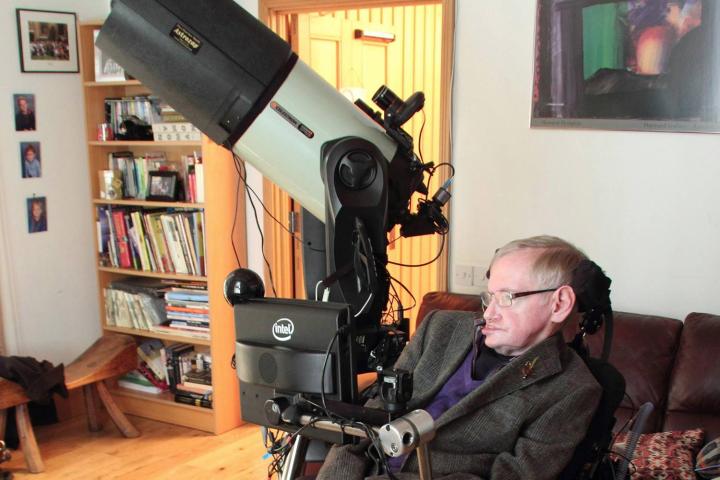
Confirmed by a spokesperson for the Hawking family, award-winning physicist Stephen Hawking died early Wednesday morning, March 14, in Cambridge, England. Author to several books including the extremely popular “A Brief History of Time,” the family said Hawking “died peacefully” in his home after living with amyotrophic lateral sclerosis (ALS) since 1962. Hawking is survived by his wife Lucy, and his two sons, Robert and Tim.
Detailed within a statement, the family wrote “We are deeply saddened that our beloved father passed away today. He was a great scientist and an extraordinary man whose work and legacy will live on for many years. His courage and persistence with his brilliance and humor inspired people across the world. He once said, ‘It would not be much of a universe if it wasn’t home to the people you love.’ We will miss him forever.”
Arguably one of the best-known figures in the scientific community, Hawking’s work as a theoretical physicist changed how many scientists viewed the universe. Combining the theory of relativity with quantum mechanics, Hawking theorized that there was a particle that radiated out of black holes; essentially altering how scientists viewed gravity. That particle was named Hawking radiation after the physicist.

While Hawking’s debilitating neurological disease forced him into immobility, it never restricted his brilliant work or hampered his spirit. Helping make science popular around the world, he appeared in multiple television shows including The Simpsons, Star Trek: The Next Generation, Futurama, and The Big Bang Theory. In addition, his life was adapted into a movie, The Theory of Everything. Eddie Redmayne went on to win the Best Actor award at the Academy Award for his portrayal of Hawking.
Interestingly, Hawking actually got a chance to experience weightlessness during 2007 when the Zero G Corporation offered to take Hawking up in one of the company’s planes. Speaking prior to the experience, Hawking said “I have been wheelchair-bound for almost four decades, and the chance to float in zero-G will be wonderful.”
Multiple public figures and organizations have expressed their sadness over Hawking’s death on social media:


